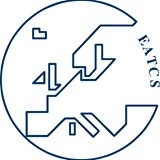Sponsors:

MFCS 2021 is organized in cooperation with EATCS

IOS Press, the publisher of Fundamenta Informaticae is the MFCS 2021 media partner
|
|
|
|
Accepted Papers
-
Guillaume Ducoffe. On computing the maximum and average distances for some chordal-like graphs
-
-
Samir Datta and Kishlaya Jaiswal. Parallel Polynomial Permanent Mod Powers of 2 and Shortest Disjoint Cycles
-
Amina Doumane. Graph characterization of the universal theory of relations
-
-
-
Gaëtan Douéneau-Tabot. Pebble transducers with unary outputs
-
Achim Blumensath and Jakub Lédl. ω-Forest Algebras and Temporal Logics
-
-
Reijo Jaakkola. Ordered fragments of first-order logic
-
-
Jan Bok, Jiří Fiala, Petr Hliněný, Nikola Jedličková and Jan Kratochvíl. Computational Complexity of Covering Multigraphs with Semi-edges: Small Cases
-
Caroline Mattes and Armin Weiß. Parallel algorithms for power circuits and the word problem of the Baumslag group
-
-
-
-
Max A. Deppert, Klaus Jansen and Kim-Manuel Klein. Fuzzy Simultaneous Congruences
-
Norbert Peyerimhoff, Marc Roth, Johannes Schmitt, Jakob Stix and Alina Vdovina. Parameterized (Modular) Counting and Cayley Graph Expanders
-
Gregory Gutin and Anders Yeo. Perfect Forests in Graphs and Their Extensions
-
Robert Ferens, Marek Szykuła and Vojtěch Vorel. Lower Bounds on Avoiding Thresholds
-
Mirai Ikebuchi. A Homological Condition on Equational Unifiability
-
Pantea Haghighatkhah, Wouter Meulemans, Bettina Speckmann, Jérôme Urhausen and Kevin Verbeek. Obstructing Classification via Projection
-
-
Yoan Géran, Bastien Laboureix, Corto Mascle and Valentin D. Richard. Keyboards as a New Model of Computation
-
-
Celina Figueiredo, Alexsander Melo, Fabiano Oliveira and Ana Silva. Maximum cut on interval graphs of interval count four is NP-complete
-
Keisuke Nakano. Idempotent Turing Machines
-
Renaud Vilmart. Quantum Multiple-Valued Decision Diagrams in Graphical Calculi
-
Maël Dumas, Anthony Perez and Ioan Todinca. A cubic vertex-kernel for Trivially Perfect Editing
-
Siddharth Bhaskar and Robin Kaarsgaard. Graph Traversals as Universal Constructions
-
-
-
Davide Trotta, Matteo Spadetto and Valeria de Paiva. The Gödel fibration
-
-
-
Bader Abu Radi, Ofer Leshkowitz and Orna Kupferman. A Hierarchy of Nondeterminism
-
-
-
-
Emmanuel Arrighi, Henning Fernau, Mateus De Oliveira Oliveira and Petra Wolf. Order Reconfiguration under Width Constraints
-
Anuj Dawar and Danny Vagnozzi. On the relative power of linear algebraic approximations of graph isomorphism
-
Bohdan Kivva. Improved upper bounds for the rigidity of Kronecker products
-
Pál András Papp and Roger Wattenhofer. Stabilization Bounds for Influence Propagation from a Random Initial State
-
Libor Barto and Kristina Asimi. Finitely Tractable Promise Constraint Satisfaction Problems
-
-
-
-
-
Debbie Huey Chih Lim and Hartmut Klauck. The Power of One Clean Qubit in Communication Complexity
-
Hendrik Molter, Malte Renken and Philipp Zschoche. Temporal Reachability Minimization: Delaying vs. Deleting
-
Robert Myers and Henning Urbat. Syntactic Minimization of Nondeterministic Finite Automata
-
Pavel Hubáček and Jan Václavek. On Search Complexity of Discrete Logarithm
-
Sarah Winter. Decision problems for origin-close top-down tree transducers
-
-
Kevin Buchin, Mart Hagedoorn, Irina Kostitsyna and Max van Mulken. Dots & Boxes is PSPACE-complete
-
-
-
Arnaldo Cesco and Roberto Gorrieri. A Decidable Equivalence for a Turing-complete, Distributed Model of Computation
-
Leon Bohn and Christof Löding. Constructing deterministic omega-automata from examples by an extension of the RPNI algorithm
-
-
-
-
V. Arvind, Abhranil Chatterjee, Rajit Datta and Partha Mukhopadhyay. Equivalence Testing of Weighted Automata over Partially Commutative Monoids
-
-
-
-
-
Hellis Tamm. Boolean Automata and Atoms of Regular Languages
-
Gabriel Duarte, Mateus De Oliveira Oliveira and Uéverton Souza. Co-degeneracy and co-treewidth: Using the complement to solve dense instances
Brynmor Chapman and Ryan Williams. Black-Box Hypotheses and Lower Bounds
Nils Morawietz and Petra Wolf. A Timecop's Chase Around the Table
Vít Jelínek, Michal Opler and Jakub Pekárek. Griddings of permutations and the hardness of pattern matching
Siddhesh Chaubal and Anna Gal. Diameter versus Certificate Complexity of Boolean Functions
-
-
N.S. Narayanaswamy, David Peleg, Vijayaragunathan Ramamoorthi, Keerti Choudhary and Avi Cohen. Budgeted Dominating Sets in Uncertain Graphs
-
Pablo Arrighi, Marin Costes and Nathanaël Eon. Universal gauge-invariant cellular automata
Arpitha Prasad Bharathi and Monaldo Mastrolilli. Ideal Membership Problem for Boolean Minority and Dual Discriminator
Adam Glos, Martins Kokainis, Ryuhei Mori and Jevgēnijs Vihrovs. Quantum speedups for dynamic programming on n-dimensional lattice graphs
Silvia Butti and Víctor Dalmau. Fractional homomorphism, Weisfeiler-Leman invariance, and the Sherali-Adams hierarchy for the Constraint Satisfaction Problem
Davide Bilò, Sarel Cohen, Tobias Friedrich and Martin Schirneck. Space-Efficient Fault-Tolerant Diameter Oracles
Fu Li and Xiong Zheng. Maximum Votes Pareto-Efficient Allocations via Swaps on a Social Network
|

